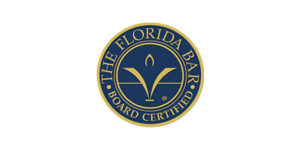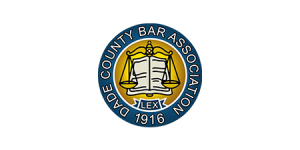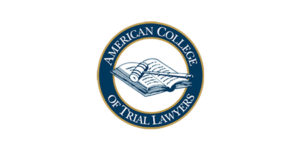



















Need A Brain & Spinal Cord Attorney In Miami?
Trust The Experienced Legal Team At Panter, Panter & Sampedro
A spinal cord injury is one of the most serious injuries a person can suffer. In cases of paralysis, it’s devastating. Victims can face shortened life spans and the loss of both voluntary and involuntary bodily functions, and they are deprived of the opportunity to enjoy life in many meaningful ways.
Panter, Panter & Sampedro represents individuals in the Miami area and throughout Florida who have suffered back injuries, spinal cord injuries and other serious injuries as the result of another’s negligence.
If you or someone you love has suffered a spinal cord injury because of the negligence of a third-party, we can help you get justice and compensation. Our firm has obtained verdicts and settlements in excess of $100 million for our clients. Call us now at 305-662-6178 for a FREE CONSULTATION with one of our experienced South Florida injury lawyers.
Types of Brain & Spinal Cord Injuries
- Paraplegia
- Quadriplegia
- Tetraplegia
- Herniated disks
- Fractured vertebrae
- Nerve impingement
Brain Injuries
Common Brain Injury Causes
Brain injuries can be life-altering, often resulting in long-term physical, cognitive, and emotional challenges. Understanding the common causes of these injuries is crucial for prevention and early intervention. From car accidents and falls to sports-related injuries and assaults, the causes of brain injuries are diverse and can happen to anyone, regardless of age or background.
Symptoms and Effects of Brain Injuries
Brain injuries can manifest in various symptoms, ranging from mild to severe. Common symptoms include headaches, dizziness, nausea, and confusion. More serious injuries can lead to loss of consciousness, seizures, and profound cognitive impairments. The effects of a brain injury can be long-lasting, impacting a person’s ability to work, communicate, and perform daily tasks. According to the Centers for Disease Control and Prevention (CDC), approximately 5.3 million Americans are living with a permanent brain injury-related disability, highlighting the significant and often life-changing effects of these injuries.
Diagnosis and Treatment Options for Brain Injuries
Diagnosing a brain injury typically involves a combination of physical examinations, imaging tests, and cognitive assessments. A healthcare provider will assess the patient’s symptoms, medical history, and the circumstances of the injury to determine the extent of the damage. Imaging tests such as CT and MRI scans can help identify structural abnormalities or bleeding in the brain. Physicians may also insert a probe to measure tissue swelling in the brain, known as an intracranial pressure monitor.
Treatment for brain injuries varies depending on the severity of the injury. For mild cases, rest and over-the-counter pain medication may be sufficient. However, more severe injuries may require hospitalization, surgery, and intensive rehabilitation. Rehabilitation often includes physical therapy, occupational therapy, speech therapy, and cognitive therapy to help patients regain lost abilities and adapt to any permanent changes.
In recent years, there have been advancements in the treatment of brain injuries, including the use of neurostimulation techniques and neurorehabilitation programs. These approaches aim to stimulate neural pathways and promote recovery.
Proving Liability in a Florida Traumatic Brain Injury (TBI) Case
When building a case for traumatic brain injury (TBI), the first step is to gather all relevant medical documentation, including records, reports, and diagnostic studies that support the diagnosis. Advances in diagnostic studies have improved the ability to define and establish TBI claims. It is essential to confirm the diagnosis with both objective and subjective findings.
Seeking specialized care from a Board Certified Physician with expertise in TBI is crucial. Keeping a journal detailing subjective experiences related to the injury and having treating physicians correlate these with objective findings can strengthen your case.
Furthermore, ensure that all medical documents, records, reports, and diagnostic studies are collected to establish or prove the diagnosis of TBI. Treating physicians should clearly state that the patient suffered a TBI and indicate its severity. Since the long-term effects of TBI can be challenging to establish, ongoing monitoring by doctors is vital. Keeping a journal of how the condition impacts daily life, including activities of daily living, can provide valuable evidence for your case.
Proving Negligence
To prove negligence in a traumatic brain injury (TBI) case in Florida a plaintiff (injured party) must prove four key elements:
Duty of Care: The plaintiff must show that the defendant (the party allegedly at fault) owed a duty of care to the plaintiff. In Florida, this generally means that the defendant had a legal obligation to act reasonably to prevent harm to others, including the plaintiff.
Breach of Duty: The plaintiff must demonstrate that the defendant breached, or failed to fulfill, their duty of care. This could involve showing that the defendant acted negligently or recklessly. Examples include violating traffic laws or failing to maintain safe premises.
Causation: The plaintiff must establish a direct link between the defendant’s breach of duty and the TBI suffered by the plaintiff. This requires demonstrating that the defendant’s actions or omissions were a substantial factor in causing the TBI.
Damages: Finally, the plaintiff must prove that they suffered actual damages as a result of the TBI. This can include medical expenses, lost income, pain and suffering, and other losses related to the injury.
In Florida, comparative negligence laws apply, meaning that if the plaintiff is found partially at fault for the accident that caused the TBI, their damages award may be reduced proportionately. TBI plaintiffs in Florida need to work with experienced personal injury attorneys who understand the state’s laws and can effectively build a case to prove negligence and recover maximum compensation.
Spin Cord Injuries
Common Spinal Cord Injury Causes
Spinal cord injuries can have devastating and life-changing consequences. Understanding the common causes of these injuries is crucial for prevention and awareness. Some of the most common causes of spinal cord injuries include:
Car Accidents: Motor vehicle accidents, including car, truck, and motorcycle crashes, are a leading cause of spinal cord injuries. The impact of a collision can cause damage to the spinal cord, resulting in partial or complete paralysis.
Falls: Falls are a common cause of spinal cord injuries, particularly among older adults. Falls from heights or slippery surfaces can lead to fractures or dislocations of the vertebrae, which can damage the spinal cord.
Sports and Recreation Injuries: Participation in sports and recreational activities can sometimes result in spinal cord injuries, especially in contact sports or activities that involve high speeds or heights.
Acts of Violence: Stabbings, gunshot wounds, and other acts of violence can cause traumatic spinal cord injuries, leading to serious and often permanent damage.
Medical Conditions: Certain medical conditions, such as arthritis, cancer, or osteoporosis, can weaken the spinal cord and make it more susceptible to injury.
Alcohol and Drug Use: Alcohol and drug use can impair judgment and coordination, increasing the risk of accidents that can result in spinal cord injuries.
Symptoms and Effects of Spinal Cord Injuries
The symptoms and effects of spinal cord injuries can vary depending on the location and severity of the injury. Some common symptoms and effects of spinal cord injuries include:
Loss of Movement: Spinal cord injuries can result in partial or complete loss of movement (paralysis) below the site of the injury. The extent of paralysis depends on the level of the injury along the spinal cord.
Loss of Sensation: Spinal cord injuries can also cause a loss of sensation below the level of the injury. This can affect the ability to feel heat, cold, or touch.
Difficulty Breathing: Injuries to the upper spinal cord (cervical spine) can affect the muscles involved in breathing, leading to difficulty breathing or respiratory failure.
Changes in Bowel and Bladder Function: Spinal cord injuries can disrupt the signals between the brain and the bowels and bladder, leading to loss of control over bowel and bladder function.
Sexual Dysfunction: Spinal cord injuries can also affect sexual function, including erectile dysfunction in men and decreased lubrication in women.
Chronic Pain: Many individuals with spinal cord injuries experience chronic pain, which can be severe and debilitating.
Secondary Health Issues: Spinal cord injuries can increase the risk of secondary health issues, such as infections, pressure ulcers (bedsores), and osteoporosis.
Individuals with spinal cord injuries need to receive comprehensive medical care and rehabilitation to manage symptoms and improve quality of life. Legal assistance may also be necessary to seek compensation for medical expenses, lost income, and other damages resulting from the injury.
Diagnosis and Treatment Options for Spinal Cord Injuries
Diagnosing a spinal cord injury (SCI) typically involves a thorough physical examination, imaging tests, and neurological assessments. The goal is to determine the location and severity of the injury to guide treatment. Common diagnostic tests for SCI include:
X-rays: X-rays can help identify fractures, dislocations, or other abnormalities in the spine.
Computed Tomography (CT) Scan: CT scans provide detailed images of the spine, which can help identify fractures, herniated discs, or other injuries.
Magnetic Resonance Imaging (MRI): MRI scans can show detailed images of the spinal cord and surrounding structures, helping to identify the extent of the injury.
Neurological Assessment: Neurological tests, such as checking reflexes and muscle strength, can help determine the extent of the spinal cord injury.
Treatment for spinal cord injuries aims to stabilize the spine, prevent further injury, and promote recovery. Treatment options may include:
Immobilization: Stabilizing the spine with braces or traction can prevent further damage during transport to a medical facility.
Surgery: Surgery may be necessary to remove debris, stabilize the spine, or repair damaged vertebrae.
Medications: Medications such as corticosteroids may be used to reduce swelling and inflammation in the spinal cord.
Rehabilitation: Rehabilitation is a crucial part of treatment for spinal cord injuries. It may include physical therapy, occupational therapy, and counseling to help individuals adapt to life with a spinal cord injury.
Experimental Treatments: Some individuals may be eligible for experimental treatments or clinical trials aimed at improving function and quality of life.
Individuals with spinal cord injuries need to receive prompt and appropriate medical care. Seeking legal advice from a personal injury attorney can also be beneficial to understand your rights and seek compensation for medical expenses, lost income, and other damages resulting from the injury.
Our Personal Injury Case Results Speak for Themselves
Experienced Civil Trial Attorneys Dedicated To Obtaining FULL Compensation For The Injured
When It Comes To A Brain or Spinal Cord Injury, You Need The Best Personal Injury Lawyer Possible
Although there are many personal injury law firms in South Florida to choose from, not many share a similar level of experience or success. Fewer still have an on-staff critical care nurse to assist them with evaluating injuries and arranging for the best medical care available. We do.
We also work with a variety of experts and use state-of-the-art courtroom exhibits, including life-sized anatomical models, to demonstrate and clearly explain — to opposing counsel, judges and juries alike — what happened and how. Because any spinal cord injury can create lifelong medical needs, we also work with specialists in fields such as economics, actuarial science and vocational rehabilitation — all in an effort to maximize compensation and provide our clients with the resources they’ll need to restructure their lives. Led by Florida board-certified trial attorneys, Mitchell J. Panter and Brett A. Panter, our team of expert catastrophic injury and accident lawyers are ready to help you.
Call our office now at 305-662-6178 to schedule a FREE CONSULTATION.




